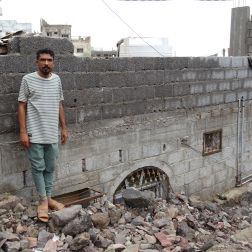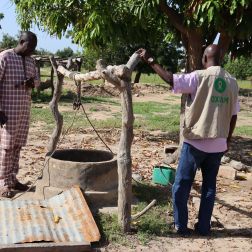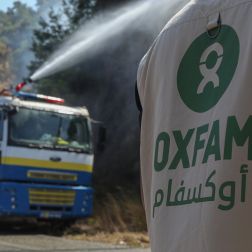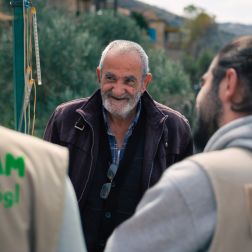- 3 mins read time
- Published: 16th March 2020
COVID-19: Stay healthy and, above all, keep calm
Did you know we’re experts at stopping the spread of deadly disease? For nearly 80 years, we’ve been working in communities across the world to promote hygiene training and provide clean water and safe sanitation – things like taps and water tanks as well as loos and showers.
In times of crisis, it’s our priority to ensure that the people we work with – some of the world’s poorest and most vulnerable – are kept safe from preventable disease and death.
Our colleague Abdullah is a frontline responder and public health promoter in the countries we work in - here he shares some thoughts on the COVID-19 outbreak:
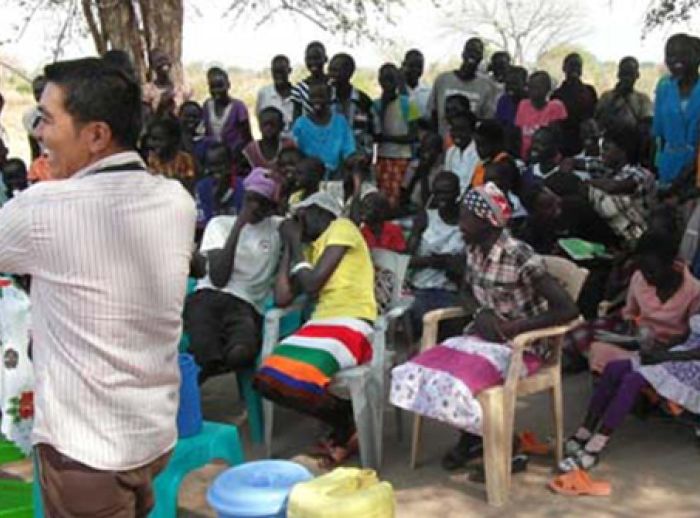
Abdullah says:
"Almost two decades ago, I left my comfort zone as a teacher and a nurse to do humanitarian and development work with Oxfam, first in the Philippines, and then in other countries. As a frontline responder and publich health promoter assigned to communities affected by the deadly Ebola virus in Libera and Sierra Leone from 2014 to 2015, I have some insights from the field on the coronavirus (COVID-19) outbreak.
First of all, we should not panic. Rather, we should be aware, alert, and exercise the protocols set by our relevant health authorities, including the World Health Organisation (WHO). During the Ebola outbreak, which left at least 11,000 people dead in West Africa in 2014 to 2015, I remember that a strict “No Touch” policy was implemented at work, following the directives of the governments of Liberia and Sierra Leone. It was prohibited to touch anyone, regardless if they were sick or not. Although we were all advised to avoid public contact, local contexts were considered in implementing this protocol.
In both Liberia and Sierra Leone, health authorities banned large gatherings of people and imposed a mandatory curfew. Handwashing stations were installed in doorsteps and gates of offices, restaurants, and homes. In the case of COVID-19, we should heed health warnings, and wash our hands properly and stringently. Where handwashing is not possible, another good strategy is to always have hand sanitiser on the ready. The battle against the virus is not solely solved through treatment. Prevention is also equally essential to break the transmission chain and stop the disease from spreading.
I was part of the team that conducted active case finding for Ebola which means that we detected people who were sick so that they can be referred to health centres and hospitals. This contributed to the whole system of breaking the transmission chain, and it was done alongside other actions like contact tracing and hygiene promotion.
The Ebola response taught me that, whether for health threats or actual outbreaks, engaging with the public and communities by giving out the correct information is a must. This lesson is helpful considering that the WHO already declared the COVID-19 outbreak a public health emergency of international concern. Without meaningful and active community participation, COVD-19 will travel beyond barriers and borders. Preparedness is critical – local government units will have a huge role to play. Mobilised communities will be better equipped to actively participate in containing, controlling, preventing, and managing the disease. On the other hand, the government must ensure that treatment centres are ready with staffing, supplies and facilities, which include safe access to water, sanitation, and hygiene. A contingency plan must be set in place even before the disease reaches other areas.
More than ever, we will need strong measures to reduce, if not completely prevent, affected people and communities from being stigmatised. I have seen and experienced first-hand how these types of negative reactions interfere with the efforts of governments, NGOs, and the international community during health emergencies. I remember experiencing stigma, even if I did not have Ebola, because nobody wanted to touch me or even sit beside me for months after I worked in West Africa.
Now is not the time for fearmongering, racism, and stereotyping. Instead, let us all be informed, stay healthy, and, above all, keep calm."
